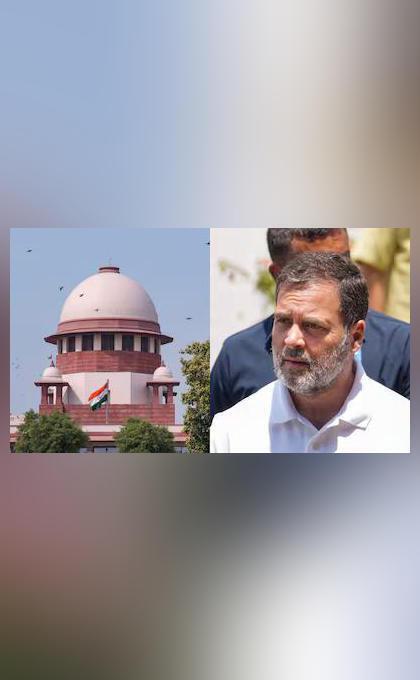
Why Ask on Social Media & Not in Parliament: SC to Rahul on ‘Land Grab’ Claim
The Supreme Court of India recently rebuked Congress leader Rahul Gandhi for his claim that China had grabbed 2,000 square kilometers of Indian land. The court’s stern words came as it stayed a defamation case against Rahul for his remarks about the Indian Army. The court’s scathing remark has raised questions about the role of social media in politics and the importance of using appropriate channels to raise important issues.
Rahul Gandhi had made the claim in 2020 during a political rally, sparking widespread outrage and debate. The remark was seen as an attempt to garner political mileage and discredit the Narendra Modi-led government. However, the Supreme Court’s rebuke suggests that Rahul’s method of making such claims was flawed.
The court’s reasoning was simple: why ask such questions on social media instead of asking them in Parliament? Rahul Gandhi, as a member of Parliament, has a platform to raise important issues and hold the government accountable. Instead, he chose to make the claim on social media, where it can be easily misinterpreted and sensationalized.
The court’s words are a timely reminder of the importance of responsible politics. In today’s digital age, social media has become a significant platform for political discourse. While it provides a means to reach a wider audience, it also brings with it the risk of misinformation and sensationalism.
Rahul Gandhi’s claim about China grabbing Indian land is a classic example of how social media can be used to spread misinformation. The claim was made without providing any concrete evidence or credible sources. It is unclear how Rahul Gandhi arrived at the figure of 2,000 square kilometers, or what evidence he had to support his claim.
The court’s rebuke is not just about Rahul Gandhi’s claim, but also about the culture of politics in India. In recent years, social media has become a battleground for political parties, with leaders using it to attack their opponents and spread misinformation.
The court’s words are a reminder that politics should be about substance, not sensationalism. Political leaders should use their platforms to raise important issues and engage in constructive debate, rather than resorting to cheap tricks and misinformation.
The Supreme Court’s rebuke of Rahul Gandhi is also a reminder of the importance of accountability in politics. Political leaders should be held accountable for their actions and statements, and the court’s intervention is a step in the right direction.
The next hearing in the case is scheduled after three weeks, and it will be interesting to see how Rahul Gandhi responds to the court’s rebuke. Will he provide evidence to support his claim, or will he continue to rely on social media to spread misinformation?
The Supreme Court’s words are a timely reminder of the importance of responsible politics. Political leaders should use their platforms to raise important issues and engage in constructive debate, rather than resorting to cheap tricks and misinformation. The court’s rebuke of Rahul Gandhi is a step in the right direction, and it is hoped that it will be a wake-up call for political leaders to use their platforms responsibly.
Source:






